Cloud Engineers are integral to the architecture and deployment of network systems in the cloud. They ensure that data storage and processing solutions meet the needs of businesses in a scalable and secure manner.
Skills necessary for a Cloud Engineer include proficiency in cloud service platforms like AWS, Azure, or Google Cloud, understanding of DevOps practices, and knowledge in scripting languages such as Python or Bash.
Candidates can write these abilities in their resumes, but you can’t verify them without on-the-job Cloud Engineer skill tests.
In this post, we will explore 8 essential Cloud Engineer skills, 9 secondary skills and how to assess them so you can make informed hiring decisions.
Table of contents
8 fundamental Cloud Engineer skills and traits
The best skills for Cloud Engineers include Cloud Platforms, DevOps Practices, Containerization, Infrastructure as Code, Security Management, Networking Fundamentals, API Integration and Performance Tuning.
Let’s dive into the details by examining the 8 essential skills of a Cloud Engineer.
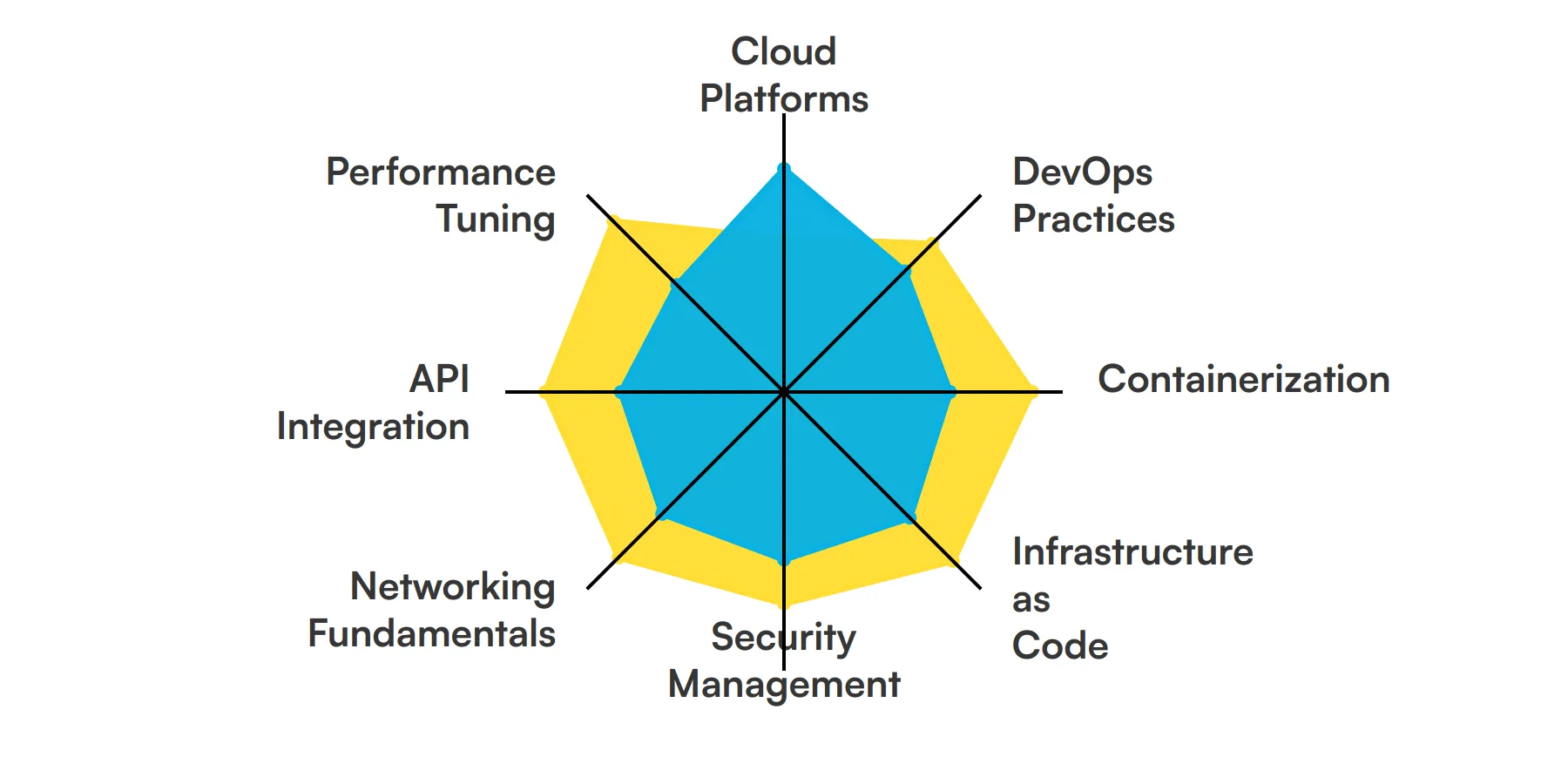
Cloud Platforms
A Cloud Engineer must be proficient in major cloud service providers like AWS, Azure, or Google Cloud Platform. This skill involves deploying, managing, and operating scalable systems on these platforms, which are crucial for handling the infrastructure of modern web applications.
For more insights, check out our guide to writing a Cloud Engineer Job Description.
DevOps Practices
Understanding and implementing DevOps practices are key for a Cloud Engineer to ensure continuous integration and delivery. This skill helps in automating processes, which improves the efficiency and reliability of deployments and operations.
Containerization
Knowledge of container technologies like Docker and Kubernetes is essential. These tools help a Cloud Engineer in creating, deploying, and managing containerized applications, which provide a consistent environment for development, testing, and production.
Check out our guide for a comprehensive list of interview questions.
Infrastructure as Code
Infrastructure as Code (IaC) tools such as Terraform or CloudFormation allow a Cloud Engineer to manage infrastructure through code. This approach increases the reproducibility and scalability of environments and reduces human error in manual setups.
Security Management
Security is paramount in cloud computing. A Cloud Engineer must be adept at implementing and managing security policies and compliance standards to protect data and maintain the integrity of cloud-based systems.
For more insights, check out our guide to writing a Cyber Security Engineer Job Description.
Networking Fundamentals
A solid understanding of networking concepts such as DNS, TCP/IP, and HTTP is necessary for a Cloud Engineer. This knowledge is used to configure network settings for cloud systems and troubleshoot connectivity issues.
API Integration
APIs play a critical role in cloud services. A Cloud Engineer uses this skill to integrate and manage different software applications and systems, facilitating seamless communication and functionality across diverse platforms.
Check out our guide for a comprehensive list of interview questions.
Performance Tuning
Optimizing the performance of cloud applications and infrastructure is a key responsibility of a Cloud Engineer. This involves monitoring resources, analyzing performance metrics, and making adjustments to ensure optimal operation.
9 secondary Cloud Engineer skills and traits
The best skills for Cloud Engineers include Scripting Languages, Database Management, Cost Management, Disaster Recovery, Load Balancing, Version Control, Compliance Knowledge, Cloud Monitoring Tools and Serverless Architectures.
Let’s dive into the details by examining the 9 secondary skills of a Cloud Engineer.
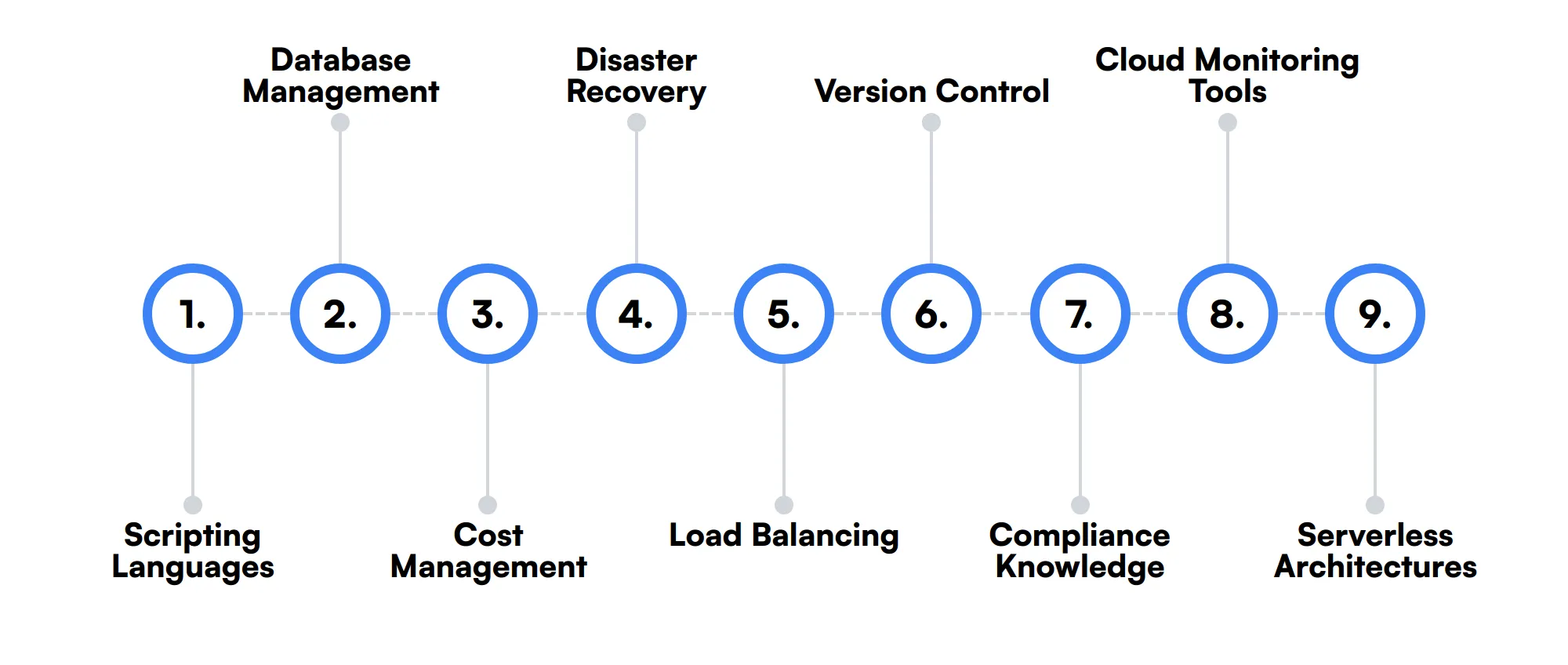
Scripting Languages
Proficiency in scripting languages such as Python, Bash, or PowerShell is useful for automating routine tasks and deploying updates.
Database Management
Understanding relational and NoSQL databases is beneficial for managing data storage solutions in the cloud.
Cost Management
A Cloud Engineer should be able to optimize and reduce costs through effective resource management and choosing the right services.
Disaster Recovery
Planning and implementing disaster recovery strategies ensures business continuity and data preservation during system failures.
Load Balancing
Knowledge of load balancing techniques is important for distributing network or application traffic across multiple servers to ensure reliability and availability.
Version Control
Using version control systems like Git helps in managing changes to the project codebase, facilitating collaboration among team members.
Compliance Knowledge
Awareness of legal and regulatory compliance requirements is necessary to ensure that cloud deployments adhere to industry standards and laws.
Cloud Monitoring Tools
Familiarity with tools like AWS CloudWatch, Google Stackdriver, or Azure Monitor is important for tracking the health and performance of cloud applications.
Serverless Architectures
Understanding serverless computing can be advantageous for building and maintaining applications that scale based on demand without managing servers.
How to assess Cloud Engineer skills and traits
Assessing the skills and traits of a Cloud Engineer involves more than just glancing at their resume. It's about understanding how well they can handle real-world tasks across various domains such as Cloud Platforms, DevOps Practices, and Security Management.
While certifications and past experiences can provide some insights, they don't fully reveal a candidate's ability to integrate APIs, manage network fundamentals, or optimize performance in a dynamic environment. This is where practical assessments come into play.
Using skills-based assessments like those offered by Adaface can significantly streamline the hiring process. By evaluating candidates through scenarios that mimic actual job tasks, you can ensure that your new hires are not only proficient in containerization and infrastructure as code but are also a perfect fit for your team. Adaface assessments have been shown to reduce screening time by 85%, making them an excellent tool for identifying top talent efficiently.
Let’s look at how to assess Cloud Engineer skills with these 6 talent assessments.
Cloud Computing Online Test
Our Cloud Computing Online Test evaluates a candidate's understanding of cloud computing, including service and deployment models, virtualization, and cloud security.
The test assesses proficiency in cloud service models, security measures, and the management of cloud storage and databases.
Candidates who perform well demonstrate a strong grasp of scalability, elasticity, and cloud orchestration, crucial for managing cloud infrastructure.
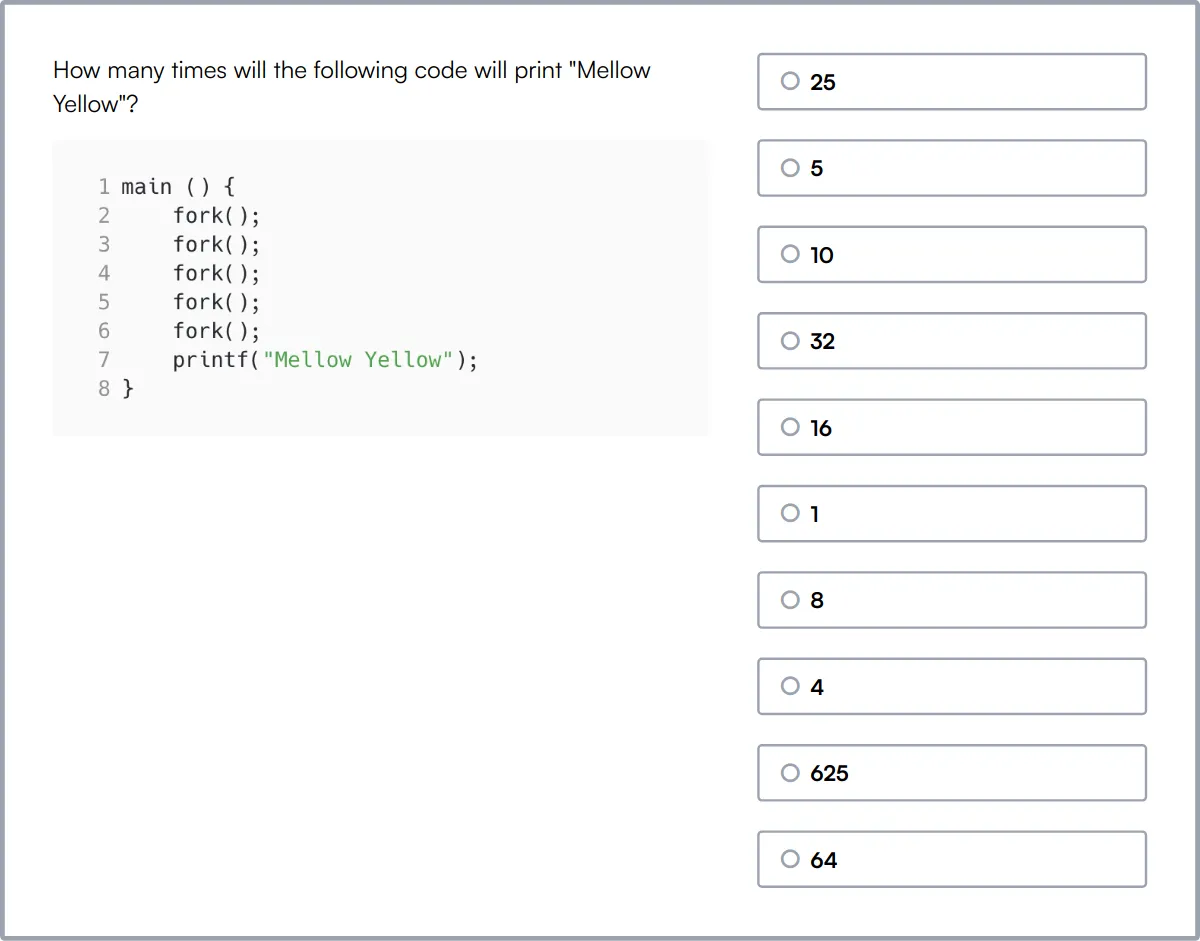
DevOps Test
The DevOps Test is designed to assess a candidate's skills in Linux, Git, Python, and Docker, which are integral to effective DevOps practices.
This test covers Git workflows, Docker container management, and Python scripting abilities.
It also evaluates the candidate's understanding of DevOps culture and practices, including continuous integration and continuous deployment.
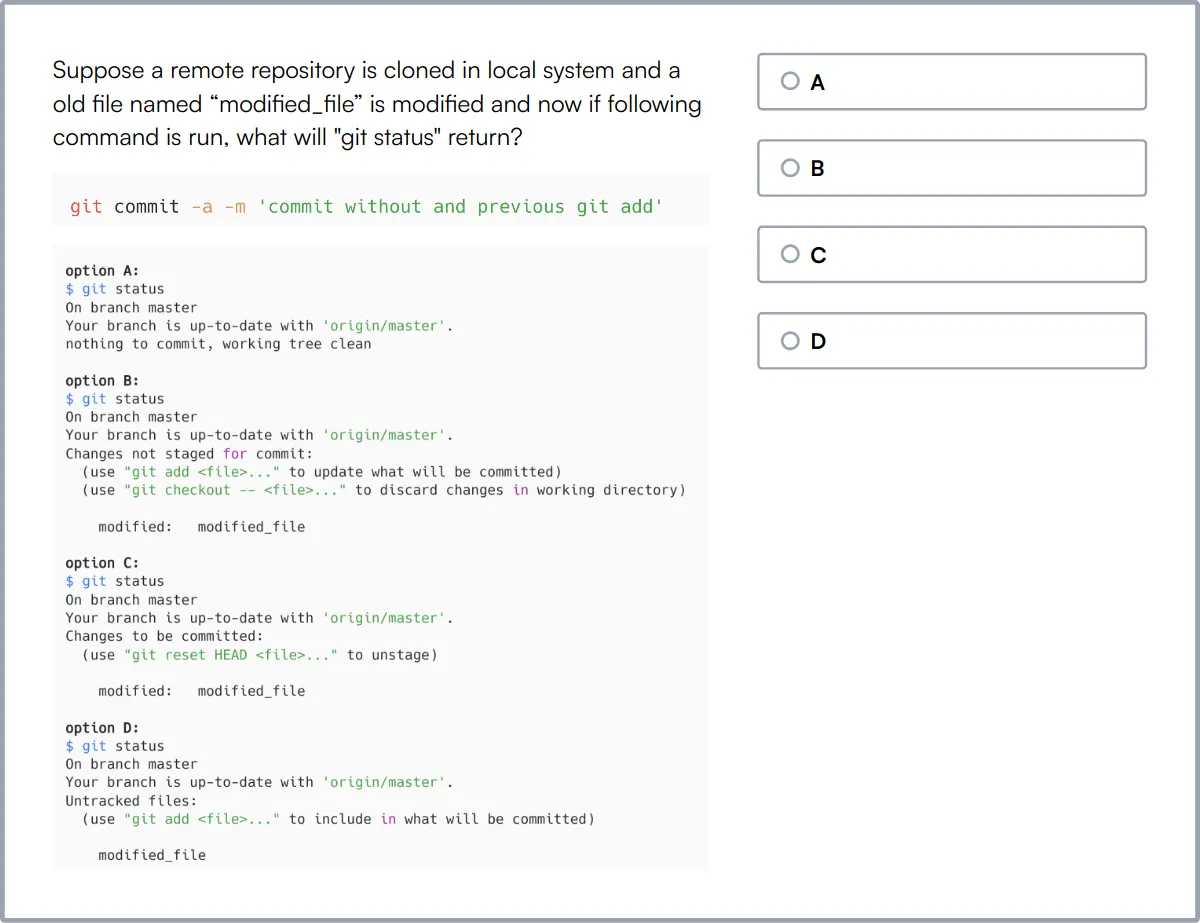
Docker Online Test
Our Docker Online Test measures a candidate's ability to work with Docker, focusing on containers, images, and Docker Compose.
The test challenges candidates on Docker security, networking, and volume management.
High-scoring individuals show proficiency in Docker orchestration and troubleshooting, key for deploying and managing containerized applications.
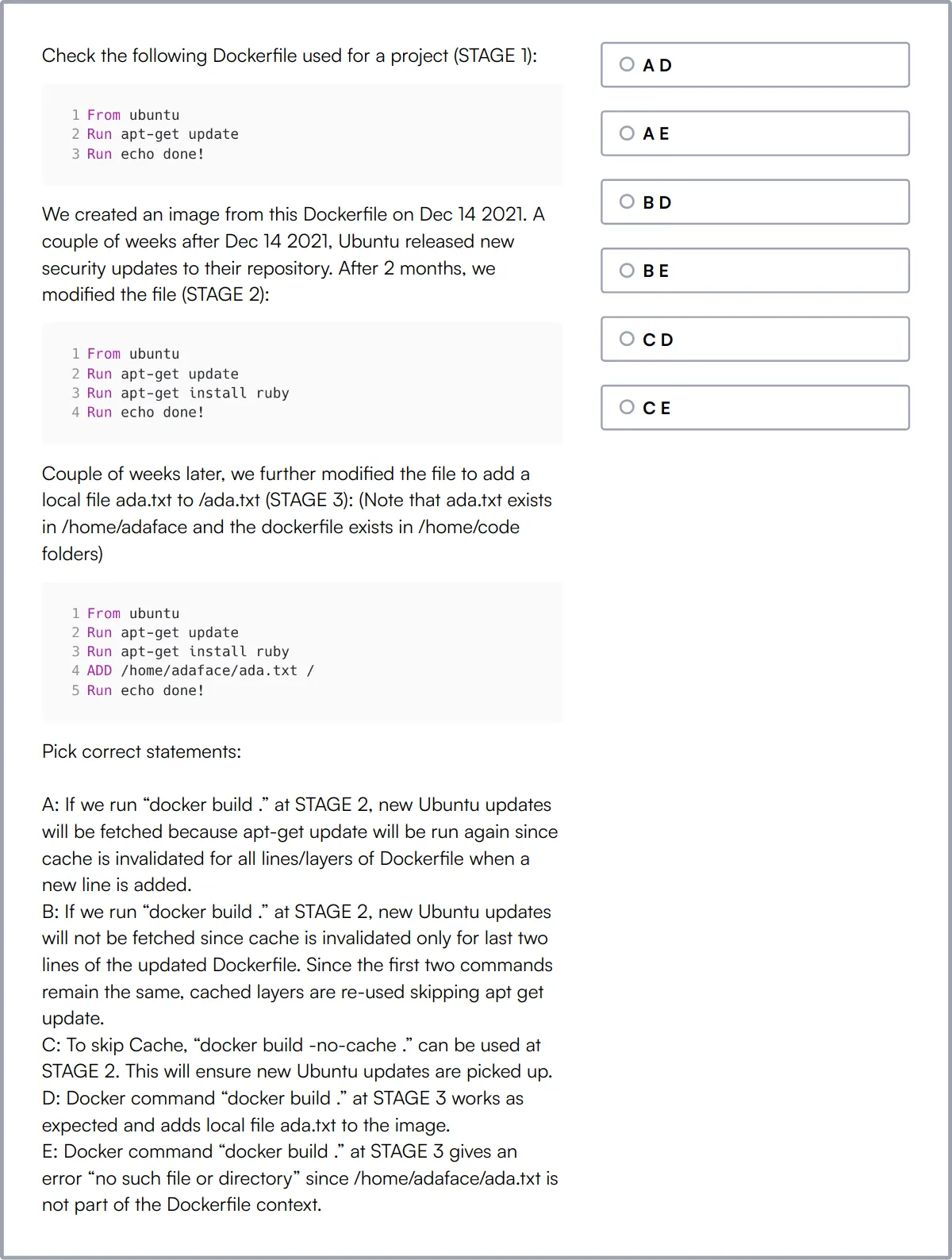
Terraform Online Test
The Terraform Online Test evaluates a candidate's expertise in using Terraform for infrastructure as code, crucial for modern cloud environments.
Candidates are tested on their ability to write and manage Terraform configurations and templates for various cloud platforms.
Successful candidates will demonstrate a thorough understanding of Terraform's role in multi-cloud deployments and DevOps processes.
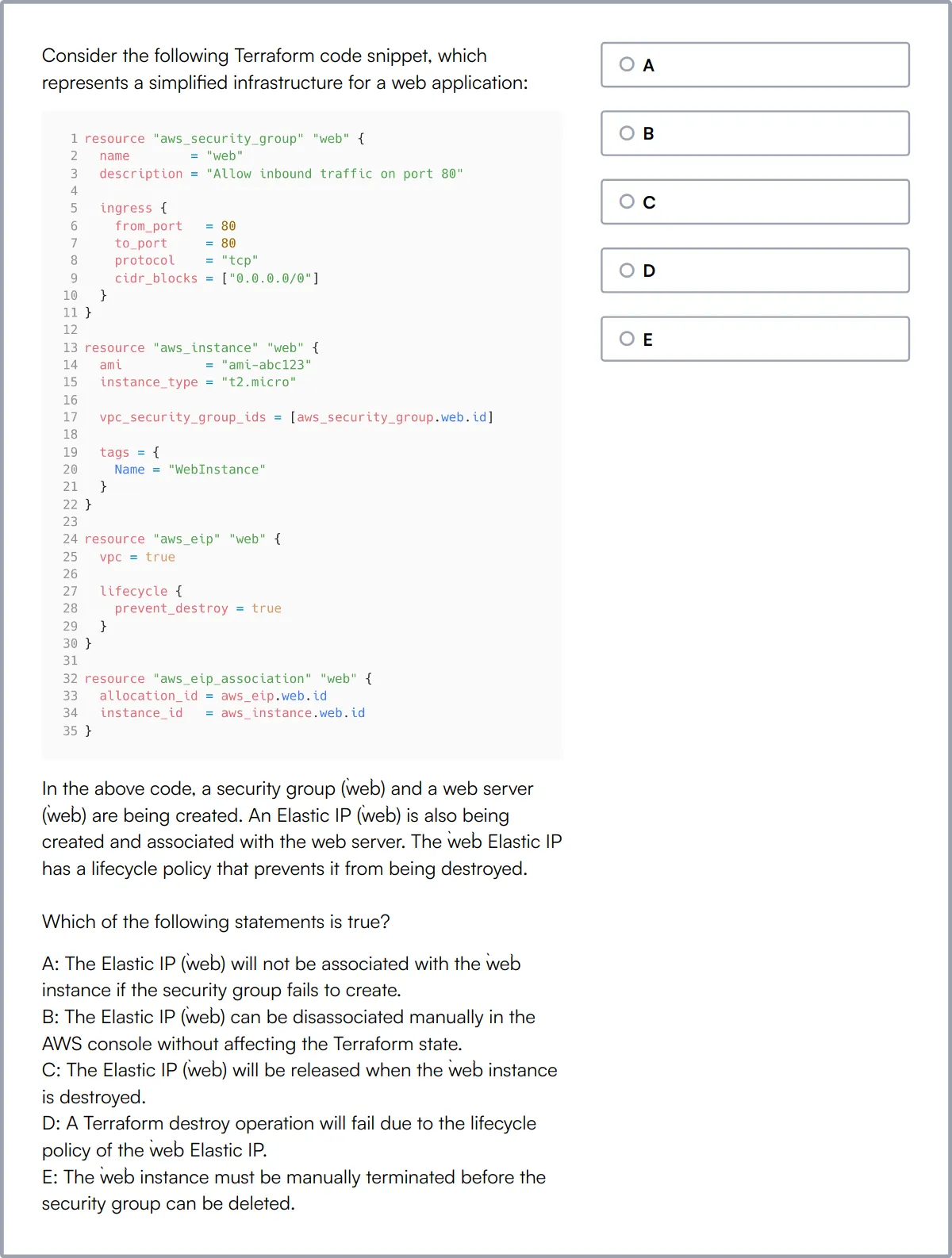
Cyber Security Assessment Test
Our Cyber Security Assessment Test assesses a candidate's knowledge in network security, cryptography, and various cybersecurity defenses.
The test includes scenarios on mitigating cyber attacks, managing network security protocols, and implementing effective cybersecurity measures.
It also gauges the candidate's ability to perform risk assessments and understand the complexities of data security and governance.
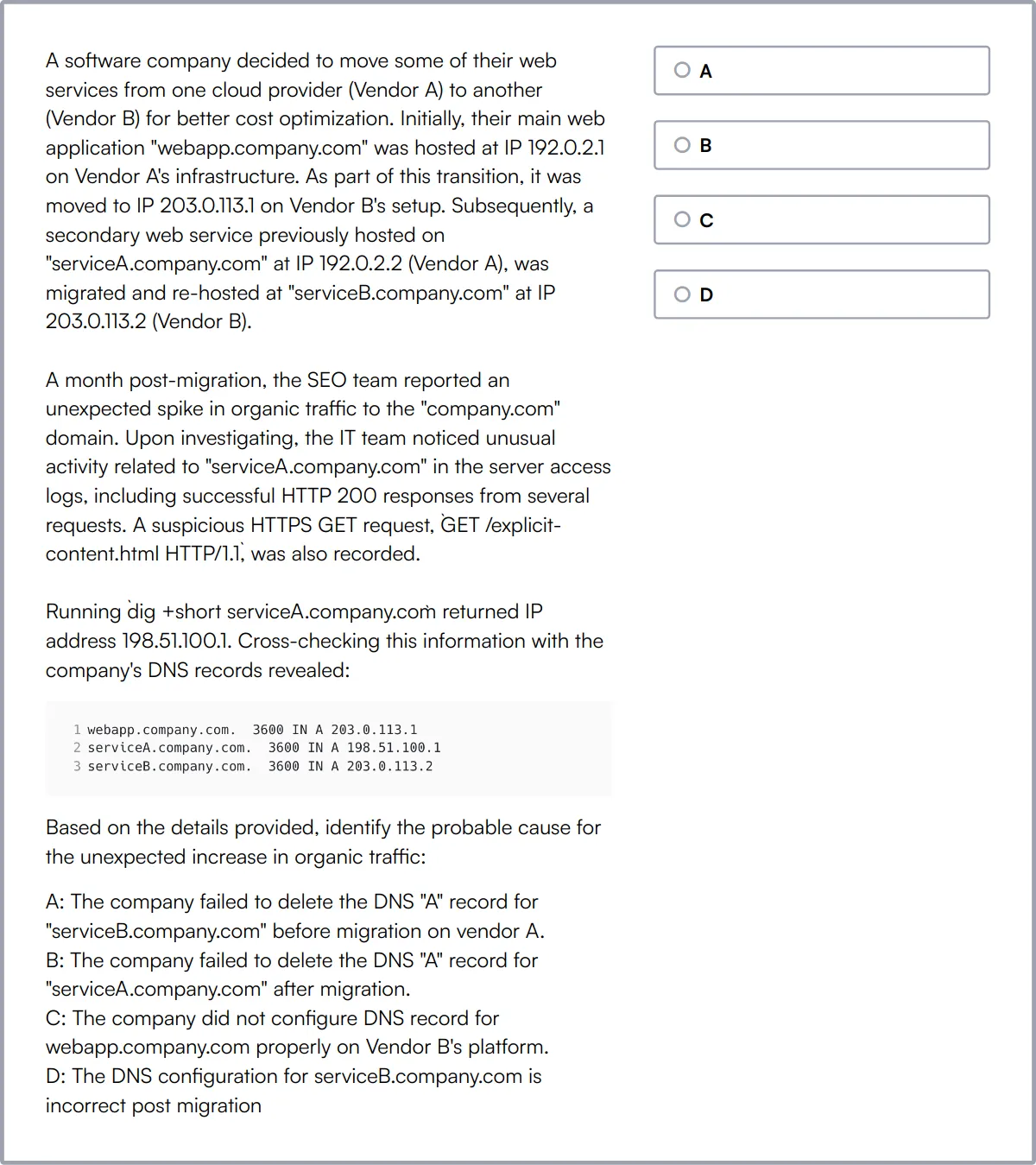
Network Engineer Online Test
The Network Engineer Online Test is designed to evaluate a candidate's skills in network design, troubleshooting, and security.
This test covers TCP/IP fundamentals, routing, switching, and network performance optimization.
Candidates excelling in this test demonstrate their capability to manage and maintain complex network infrastructures, ensuring efficient data transfer and communication.
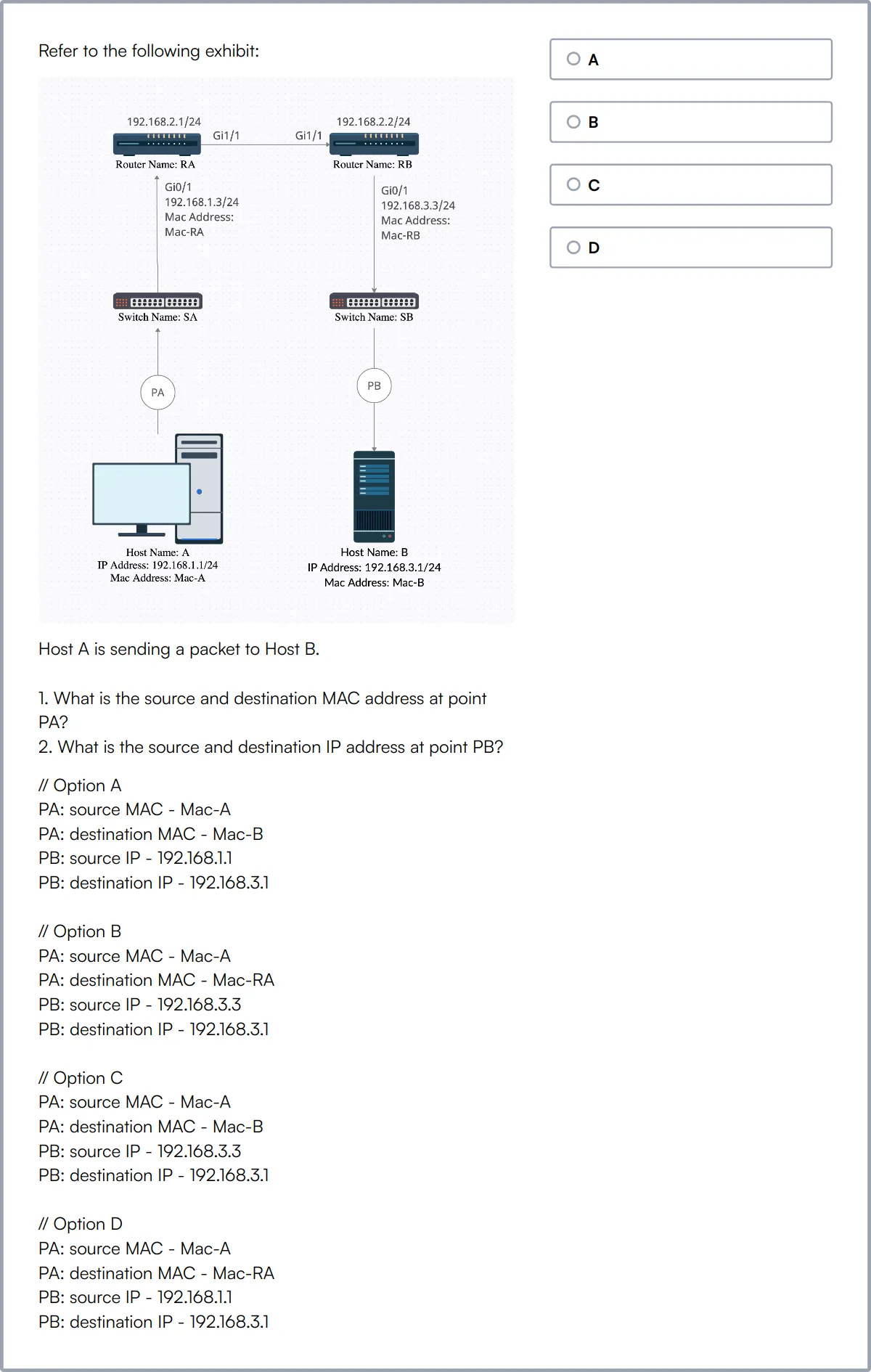
Summary: The 8 key Cloud Engineer skills and how to test for them
| Cloud Engineer skill | How to assess them |
|---|---|
| 1. Cloud Platforms | Evaluate familiarity with different cloud services and management tools. |
| 2. DevOps Practices | Assess understanding and implementation of continuous integration and delivery processes. |
| 3. Containerization | Check proficiency in using containers like Docker for application deployment. |
| 4. Infrastructure as Code | Test ability to manage and provision infrastructure through code. |
| 5. Security Management | Review knowledge of securing cloud services and data protection. |
| 6. Networking Fundamentals | Examine understanding of network configurations, protocols, and troubleshooting. |
| 7. API Integration | Assess skills in connecting and utilizing different software interfaces. |
| 8. Performance Tuning | Evaluate techniques to optimize the performance of cloud resources. |
Cloud Computing Online Test
Cloud Engineer skills FAQs
What are the key cloud platforms a Cloud Engineer should be proficient in?
Cloud Engineers should have expertise in major cloud platforms like AWS, Azure, and Google Cloud Platform. Familiarity with each platform's unique services and management tools is necessary for designing and managing cloud solutions.
How can recruiters assess a candidate's proficiency in DevOps practices?
Recruiters can assess DevOps skills by asking candidates to describe their experience with CI/CD pipelines, automation tools, and their approach to collaboration between development and operations teams.
What is the importance of containerization in a Cloud Engineer's role?
Containerization helps in creating scalable and isolated environments for applications. Knowledge of tools like Docker and Kubernetes is important for deploying, managing, and scaling containerized applications.
How does Infrastructure as Code contribute to cloud engineering?
Infrastructure as Code (IaC) allows engineers to manage and provision infrastructure through code. This practice supports consistent environments, reduces manual errors, and enhances reproducibility across deployments.
What should a Cloud Engineer know about security management?
A Cloud Engineer must understand cloud security best practices, compliance policies, and how to implement security protocols. Knowledge of identity and access management, encryption, and security audits is essential.
Why is knowledge of networking fundamentals important for Cloud Engineers?
Networking fundamentals are key for designing and managing cloud networks. Cloud Engineers need to understand network architectures, data transfer, and troubleshooting to ensure efficient data flow and system connectivity.
How can performance tuning impact cloud services?
Performance tuning ensures that cloud services operate optimally by adjusting configurations, scaling resources, and optimizing processes. This can lead to better resource utilization and improved user experiences.
What role does disaster recovery play in cloud engineering?
Disaster recovery is critical for maintaining data integrity and availability. Cloud Engineers must design systems that can recover quickly from failures, ensuring minimal downtime and data loss.

40 min skill tests.
No trick questions.
Accurate shortlisting.
We make it easy for you to find the best candidates in your pipeline with a 40 min skills test.
Try for freeRelated posts
Free resources



